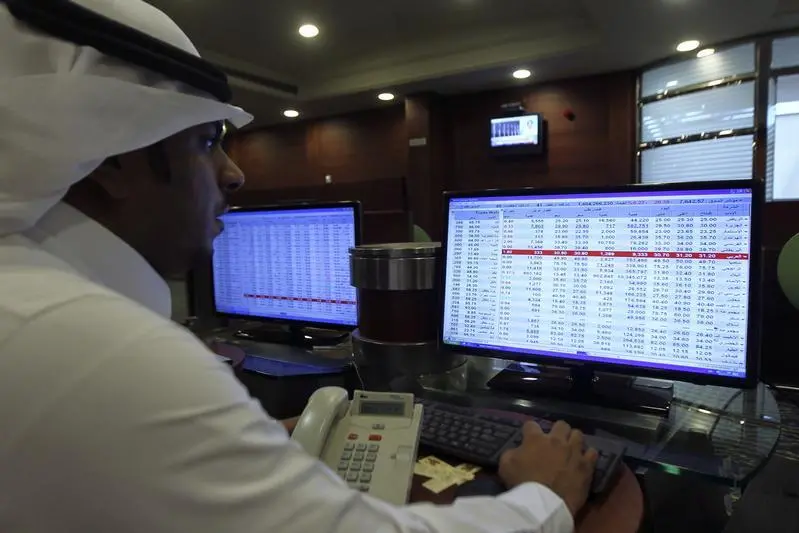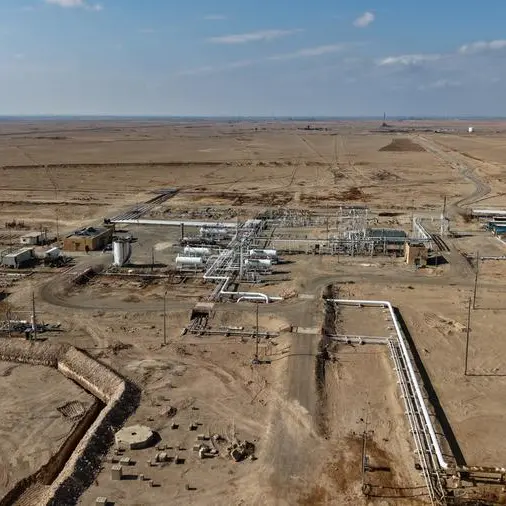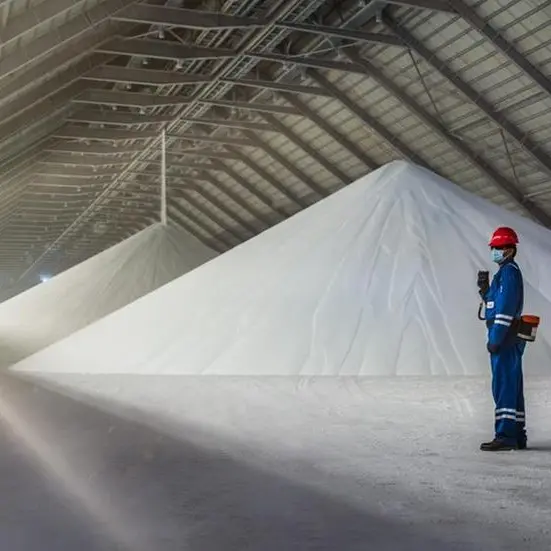PHOTO
* Saudi five-year CDS drop to lowest level this year
* Economy still faces substantial risks
* Banking shares surge on hopes for deposit injection
* Bank share index surges
By Andrew Torchia and Karin Strohecker
DUBAI/LONDON, Oct 20 (Reuters) - The cost of insuring Saudi Arabia's debt against default fell to its lowest this year and Saudi bank shares jumped on Thursday in a sign that a mammoth $17.5 billion bond issue has partly eased doubts about the kingdom's ability to cope with cheap oil.
The Saudi currency and stock market have come under heavy pressure this year as investors bet shrunken oil revenues might push the economy into recession and eventually force authorities to abandon the riyal's peg to the U.S. dollar.
But the massive demand attracted by the Saudi government's first international bond sale on Wednesday, the largest emerging market debt deal in history, is causing some speculators to reduce or abandon those bets, bankers and traders said.
"A lot of the hedge funds made speculative bets on the Saudis because of the well-known issues they had - like the depeg story, where everyone thought the Saudis would have to depeg," said a debt trader in London.
"Obviously that has kind of unwound now because the bond has been such a success."
Five-year Saudi credit default swaps
That still left Saudi CDS trading above the Philippines
But other markets also showed that the jitters were easing. The index of Saudi banking shares
Bond market sentiment throughout the region improved, with the yield on Qatar's June 2021 sovereign bond
After pricing more tightly than expected, Saudi Arabia's new bonds rose further in the secondary market, gaining about 10 basis points because of massive unsatisfied demand for the paper.
INFLOWS
Much of that demand stems from ultra-low global interest rates and huge pools of idle money rather than expectations for strength in the Saudi economy, which may remain sluggish for at least several years as Riyadh grapples with its budget deficit.
The International Monetary Fund warned this week that Gulf oil exporters including Saudi Arabia faced considerable risks.
"An adverse feedback loop between budget spending cuts and tightening credit conditions could reduce the private sector's ability to pick up the slack created by the shrinking public sector," it said.
But this week's bond issue looks set to benefit the kingdom in several ways. By creating a new source of dollar inflows - bankers expect another sovereign issue as soon as next year - the bond should reduce pressure for the riyal to depreciate.
This week's issue may by itself almost cover Saudi Arabia's current account deficit next year, which the IMF projects at $17.7 billion.
Secondly, the bond will allow Saudi Arabia to slow the drawdown of its foreign assets to pay its bills, which is a focus of speculative pressure on the riyal.
Monica Malik, chief economist at Abu Dhabi Commercial Bank, estimated the monthly drawdown would slow to an average $3-3.5 billion per month in 2017 from $6.8 billion per month so far this year.
Net foreign assets at the central bank totalled $554 billion in August, implying a heavy foreign bond issuance programme could buy the Saudis at least several more years of breathing space to reduce their economy's dependence on oil exports.
This week's bond sale may also give a boost to the domestic economy. Lending rates have been rising this year as the drop in petrodollar inflows leaves banks with less spare cash; this is hurting growth in the private sector.
Bankers expect at least part of the $17.5 billion to be deposited with domestic banks in coming months, giving them more scope to lend and perhaps temporarily capping the uptrend in rates. Pressure on rates may ease further as big Saudi firms use the sovereign bond issue as a benchmark to raise funds abroad rather than domestically.
Banking shares were hit this year by fears of souring loans in the construction sector, where the government has delayed payments that it owes to companies for months, pushing some of the firms into severe difficulties.
In a television interview broadcast just after the bond sale, Finance Minister Ibrahim Alassaf said payments to companies would now rise. He did not elaborate, but Malik said some of the bond proceeds might be used to support payments.
(Editing by Gareth Jones) ((andrew.torchia@thomsonreuters.com; +9715 6681 7277; Reuters Messaging: andrew.torchia.thomsonreuters.com@reuters.net))
* Economy still faces substantial risks
* Banking shares surge on hopes for deposit injection
* Bank share index surges
By Andrew Torchia and Karin Strohecker
DUBAI/LONDON, Oct 20 (Reuters) - The cost of insuring Saudi Arabia's debt against default fell to its lowest this year and Saudi bank shares jumped on Thursday in a sign that a mammoth $17.5 billion bond issue has partly eased doubts about the kingdom's ability to cope with cheap oil.
The Saudi currency and stock market have come under heavy pressure this year as investors bet shrunken oil revenues might push the economy into recession and eventually force authorities to abandon the riyal's peg to the U.S. dollar.
But the massive demand attracted by the Saudi government's first international bond sale on Wednesday, the largest emerging market debt deal in history, is causing some speculators to reduce or abandon those bets, bankers and traders said.
"A lot of the hedge funds made speculative bets on the Saudis because of the well-known issues they had - like the depeg story, where everyone thought the Saudis would have to depeg," said a debt trader in London.
"Obviously that has kind of unwound now because the bond has been such a success."
Five-year Saudi credit default swaps
That still left Saudi CDS trading above the Philippines
But other markets also showed that the jitters were easing. The index of Saudi banking shares
Bond market sentiment throughout the region improved, with the yield on Qatar's June 2021 sovereign bond
After pricing more tightly than expected, Saudi Arabia's new bonds rose further in the secondary market, gaining about 10 basis points because of massive unsatisfied demand for the paper.
INFLOWS
Much of that demand stems from ultra-low global interest rates and huge pools of idle money rather than expectations for strength in the Saudi economy, which may remain sluggish for at least several years as Riyadh grapples with its budget deficit.
The International Monetary Fund warned this week that Gulf oil exporters including Saudi Arabia faced considerable risks.
"An adverse feedback loop between budget spending cuts and tightening credit conditions could reduce the private sector's ability to pick up the slack created by the shrinking public sector," it said.
But this week's bond issue looks set to benefit the kingdom in several ways. By creating a new source of dollar inflows - bankers expect another sovereign issue as soon as next year - the bond should reduce pressure for the riyal to depreciate.
This week's issue may by itself almost cover Saudi Arabia's current account deficit next year, which the IMF projects at $17.7 billion.
Secondly, the bond will allow Saudi Arabia to slow the drawdown of its foreign assets to pay its bills, which is a focus of speculative pressure on the riyal.
Monica Malik, chief economist at Abu Dhabi Commercial Bank, estimated the monthly drawdown would slow to an average $3-3.5 billion per month in 2017 from $6.8 billion per month so far this year.
Net foreign assets at the central bank totalled $554 billion in August, implying a heavy foreign bond issuance programme could buy the Saudis at least several more years of breathing space to reduce their economy's dependence on oil exports.
This week's bond sale may also give a boost to the domestic economy. Lending rates have been rising this year as the drop in petrodollar inflows leaves banks with less spare cash; this is hurting growth in the private sector.
Bankers expect at least part of the $17.5 billion to be deposited with domestic banks in coming months, giving them more scope to lend and perhaps temporarily capping the uptrend in rates. Pressure on rates may ease further as big Saudi firms use the sovereign bond issue as a benchmark to raise funds abroad rather than domestically.
Banking shares were hit this year by fears of souring loans in the construction sector, where the government has delayed payments that it owes to companies for months, pushing some of the firms into severe difficulties.
In a television interview broadcast just after the bond sale, Finance Minister Ibrahim Alassaf said payments to companies would now rise. He did not elaborate, but Malik said some of the bond proceeds might be used to support payments.
(Editing by Gareth Jones) ((andrew.torchia@thomsonreuters.com; +9715 6681 7277; Reuters Messaging: andrew.torchia.thomsonreuters.com@reuters.net))





















